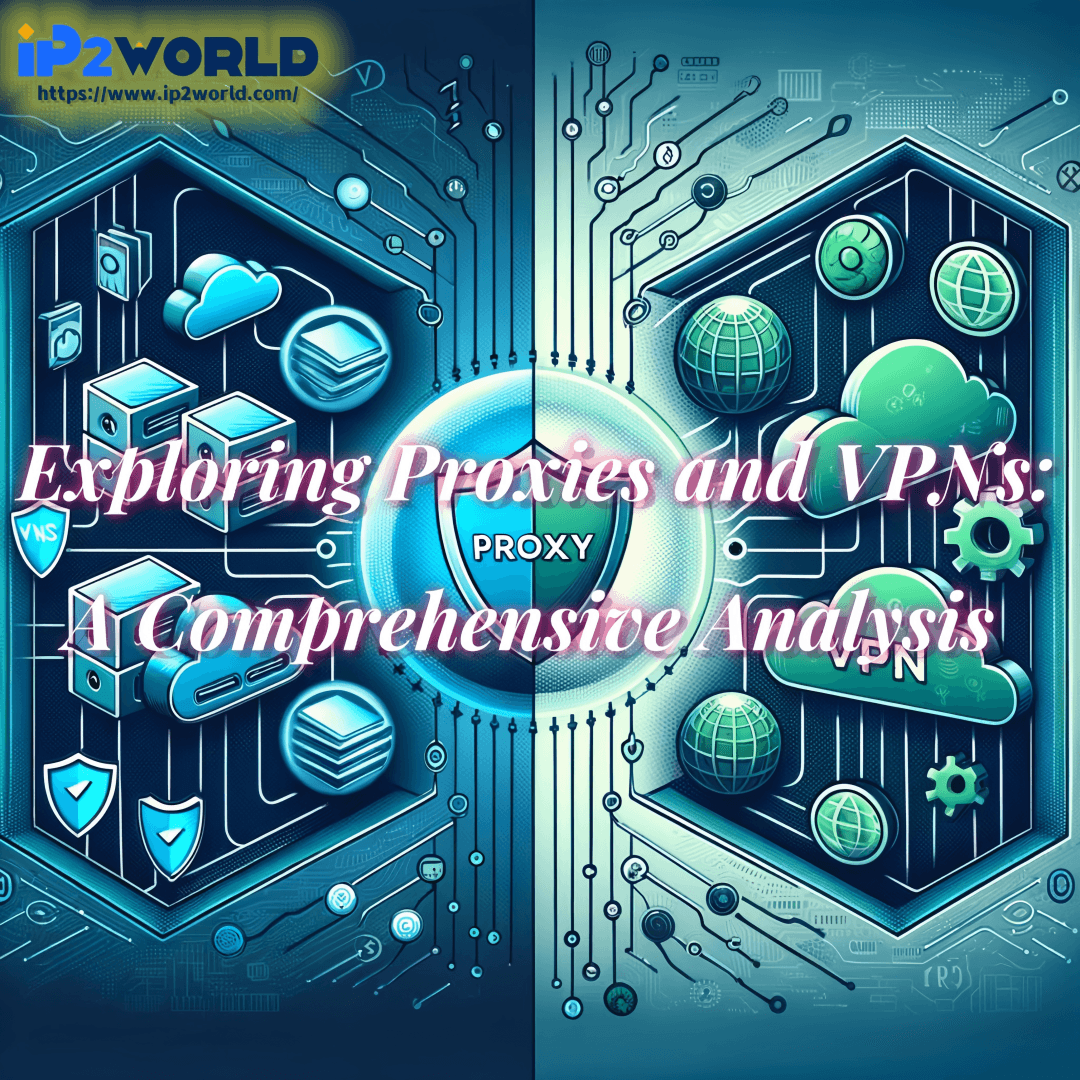Introduction: Understanding Proxies and VPNsIn today's digital era, where data security and online anonymity have become critical concerns, understanding and utilizing the right tools to safeguard online activities is paramount. Proxies and Virtual Private Networks (VPNs) are two such tools that have gained significant attention for their ability to enhance online security and privacy. This article aims to delve deeply into the functionalities and differences of Proxies and VPNs, providing readers with a comprehensive understanding of these technologies. Proxies: How They Function and Their LimitationsProxies serve as intermediaries between a user's device and the internet. Primarily, they are used for managing HTTP and HTTPS traffic, which is essential for web browsing and overcoming geographical content restrictions. The core function of a proxy is to route a user's internet request through its server, thereby replacing the user's actual IP address with that of the proxy. This process not only enhances online anonymity but also allows access to region-specific content. However, proxies have their limitations. They generally operate at the application level, meaning their functionality is limited to specific applications or web services. This selective coverage implies that proxies do not secure all internet traffic but only the traffic coming from configured web applications. Moreover, the level of encryption provided by proxies is typically less extensive than that of VPNs, potentially leaving gaps in user data security. VPNs: A Deeper Dive into Their CapabilitiesVPNs offer a more robust solution for online privacy and security. Unlike proxies, VPNs operate at the system level, encrypting all internet traffic from a device. This encryption creates a secure tunnel between the user's device and the VPN server, ensuring that all data transmitted is protected from potential interception. The advantages of using a VPN are manifold. It provides superior encryption, securing various types of internet traffic, including browsing, streaming, and gaming. VPNs not only mask the user's IP address but also encrypt all data, ensuring complete privacy and security. However, this extensive encryption can sometimes slow down the internet connection, a trade-off for the heightened security. Proxies vs VPNs: Delineating the DifferencesWhen comparing Proxies and VPNs, the primary differences lie in their security levels, coverage, operational speed, and privacy policies. VPNs, with their all-encompassing encryption, provide superior security and privacy, making them ideal for sensitive online activities. Proxies, while offering application-level anonymity, fall short in providing comprehensive security and privacy. In terms of usage scenarios, proxies are suitable for users seeking quick and specific access to web services, particularly when anonymity is a primary concern. VPNs, on the other hand, are better suited for users who require robust privacy and security for all their online activities. Privacy policies also vary between the two. Some free proxies may track and store user data, potentially compromising privacy. Reputable VPNs usually adhere to strict no-log policies, offering a more secure and private online experience. Conclusion: Making an Informed ChoiceIn conclusion, both Proxies and VPNs offer valuable services tailored to different online security and privacy needs. Understanding the distinctions between these two technologies is crucial in making an informed decision about which tool to use. Proxies are ideal for specific, application-level tasks requiring anonymity, while VPNs are the go-to solution for comprehensive security across all online activities. Recognizing the strengths and limitations of each will enable users to effectively protect their online presence in various scenarios. The importance of these tools in today's digital landscape cannot be overstated, as they play a crucial role in safeguarding personal and professional online activities against growing cyber threats. By choosing the right tool based on individual needs and understanding their functionalities, users can navigate the digital world with greater confidence and security.
2023-11-25

